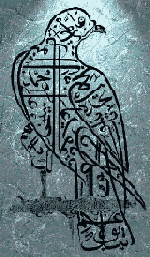 We are grateful for the support that came from so many of you as a result of our first Newsletter. Your support allows us to pay our bills, to hire a staff person for about fifteen hours a week, to keep up our communications, to continue publishing the Eye of the Heart, and to focus on the present and future needs of Sufism in our world.
We are grateful for the support that came from so many of you as a result of our first Newsletter. Your support allows us to pay our bills, to hire a staff person for about fifteen hours a week, to keep up our communications, to continue publishing the Eye of the Heart, and to focus on the present and future needs of Sufism in our world.
We have been encouraged by the act that many people we have never even met in person have wanted to support this work. We hope that, God willing, we will all come to know each other more deeply and share in the joys of the Path.
The Tradition offers us its ritual, culture, and wisdom, but we must apply these under new and always changing circumstances. There has been an interval, even a trauma in the history of the Mevlevi Order during the twentieth century. The outer continuity has been broken since the founding of the Turkish Republic. For the last seventy years Sufism has had to function under serious constraints in Turkey. The institutions of Sufism were outwardly dismantled, our properties were taken, and our activities were transferred mostly to private homes. The kind of freedoms that we taken for granted here in America–freedom of assembly, freedom of religious expression–have not been possible. Sufism is forced to adapt itself to “cultural foundations” that offer performances and intellectual activities. Consequently, we cannot look to the homeland of our tradition for a model of a contemporary Sufism.
The Mevlevis have taken a fastidiously apolitical position during these years. Most are loyal supporters of the secular, democratic republic. This is only being mentioned in light of the responsibility that has fallen on our shoulders to renew the Tradition. It is possible that the creative center of the Mevlevi tradition has been transferred outside of its land of origin. Or maybe we are to hold something for a period of time until it can be fully returned.
Because of the disconintuity in the Tradition we find ourselves searching for the prototypes on which to form a Sufic culture. And yet we are dealing with a society that has different economic structures, gender relationships, and social norms.
More and more of the world is calling for Sufism without even knowing it. Sufism is a complete spiritual practice and way of life. It is not merely technique, but a fabric of knowledge, values, relationships. Moreover, it is not a mass-produced fabric, but one that must be woven together with the help of people who have mastered the weaving themselves.
In so many places in the modern world, from Anchorage to Santiago, from Ankara to Zurich, from Vermont to Sarajevo there are groups and individuals who have been waiting a long time for an appropriate and contemporary manifestation of Sufism. May Allah and Hazrati Mevlana guide, support, and protect our yearning.

